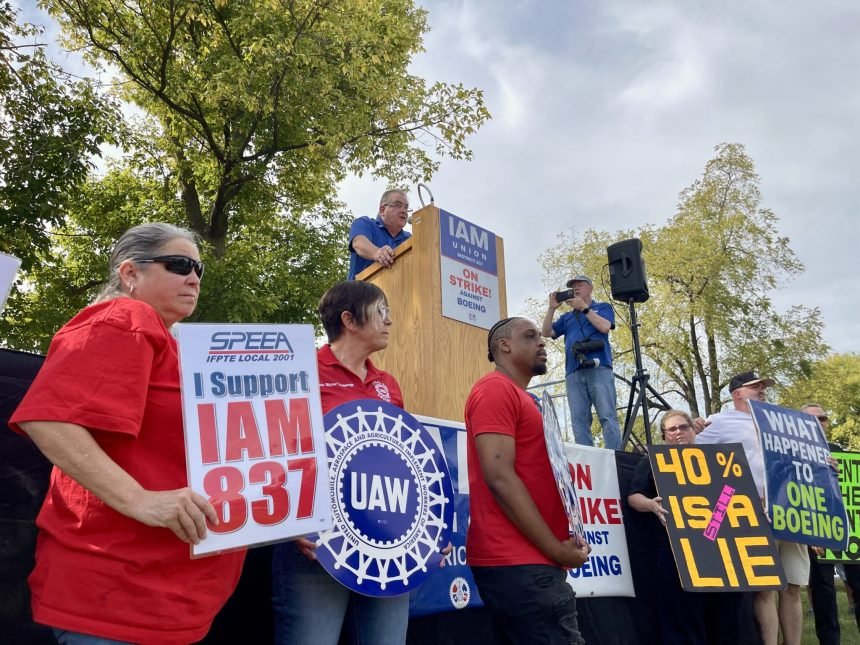The union representing 3,200 Boeing Defense workers on strike in the St. Louis area said it has filed an unfair labor practice complaint with the National Labor Relations Board against the company.
The complaint follows an Oct. 8 letter sent to workers by Boeing Executive Vice President Steve Parker, where he urged employees to take the company’s final offer.
“No matter how long the strike lasts, the economics won’t change,” Parker wrote in his letter. “The bottom line is firm. Each of the offers we’ve put forward would give you a better deal than anything comparable we’ve seen in our region and industry…”
The International Association of Machinists and Aerospace Workers District 837 said in a press release Thursday that Parker’s statements “make clear the company’s refusal to bargain in good faith.”
The union said the company’s repeated rejections of the union proposals “without making any counter offers addressing member concerns” is a violation of federal labor law to negotiate in good faith.
“This strike is about respect and fairness,” said Tom Boelling, IAM District 837 directing business representative, in a Thursday press release. “Our members are standing up for their families, their future, and for fair treatment at the bargaining table. Boeing’s delays are hurting its own production, putting critical defense contracts at risk, and showing that you can’t replace skilled union labor with untrained temps.”
Boeing Defense did not immediately respond to The Independent’s request for comment.
The strike began Aug. 4, just months after Boeing was awarded a government contract to build the Air Force’s next-generation fighter jet, the F-47.
The company landed the contract because of “the ingenuity and skill of IAM Union members who have dedicated their careers to building America’s fighter aircraft,” the press release states.
“These men and women have decades of skill, experience, and dedication,” said Sam Cicinelli, IAM Union Midwest territory general vice president. “Boeing’s CEO is paid tens of millions of dollars, while the workers who build our military jets are being told to settle for less than they deserve. That’s unacceptable — and people on both sides of the aisle in Congress are taking notice.”
Cicinelli said lawmakers from both parties have called on Boeing to negotiate in good faith, because this strike and the company’s refusal to bargain is hurting our national defense.
Boeing and union representatives met with a federal mediator last month, in an effort to find a path to end the strike.
But both issued statements that the negotiations failed. The union said Boeing refused to budge, and the company said union reps came to the table with “unrealistic” expectations.
“As we have said multiple times, we are open to constructive feedback from the union within the overall economics of our offer, which is at the top of the market for Midwest manufacturing,” according to a statement Boeing issued Monday.
The union countered by saying the way to end the strike would be “the sensible pre-ratified offer that was approved by our membership. We are available when the company has an improved offer.”













